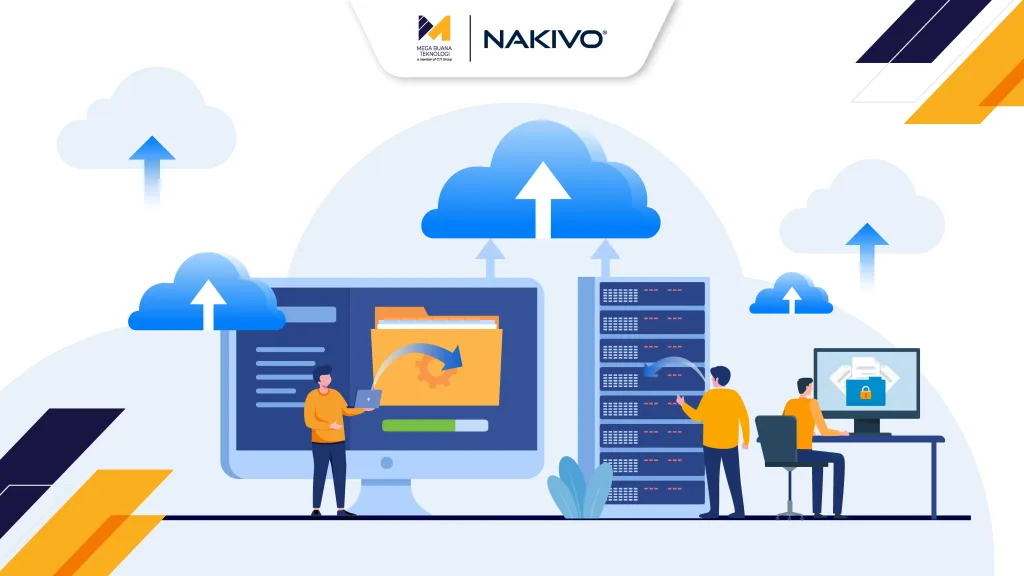Is your company’s data truly secure? According to Indonesia’s National Cyber and Crypto Agency (BSSN), there were 3.64 billion cyberattacks in just the first half of 2025 (Tempo, 2025). This figure highlights the severity of data threats in Indonesia and the potentially significant losses companies could face without strong protective measuers.
To address these risks, organizations need to adopt a comprehensive security strategy, including encryption, access control, monitoring, and regular backups. In addition, employee training is essential so they can actively contribute to securing databases and reducing the risk of breaches.
This article explores the definition of database security, the key threats, and effective steps to protect your company’s data.
What is Database Security? Definition and Impact
Databases are the backbone of modern business operations, storing customer information, transactions, and internal records. If left unprotected, even minor vulnerabilities can open the door to devastating breaches.
Database security refers to the comprehensive effort to keep data confidential, accurate, and accessible only to authorized users. It involves access control, encryption, and monitoring, ensuring not only data protection but also customer trust.
Understanding Database Vulnerabilities and Security Risks
As the central repository of sensitive data, databases are a prime target for cyberattacks. Threats can come from both external and internal sources, each with serious consequences.
External Threats:
- SQL Injection attacks to gain unauthorized access.
- Malware targeting database servers.
- Credential theft via phishing or brute-force attempts.
Internal Threats:
- Misconfigured databases that expose security gaps.
- Excessive user privileges without proper oversight.
- Employee negligence, such as weak or shared passwords.
By recognizing these risks, organizations can proactively strengthen their defenses. Safeguarding database security is crucial not only to protect data but also to preserve customer confidence.
Real-World Case: Healthcare Data Breach in Indonesia
One of Indonesia’s largest incidents occurred in 2021 with the breach of BPJS Kesehatan data. Around 279 million records—including national IDs, emails, addresses, and salary details—were reportedly leaked and sold on the dark web (Tempo, 2021).
This case highlights how unprotected databases can lead to severe financial and reputational damage. It also serves as a reminder that sensitive data will always be a prime target for cybercrime, and without robust security strategies, public trust is at stake.
Key Steps to Strengthen Database Security
Securing a database requires a holistic approach that covers technology, policies, and human factors. A single layer of protection is not enough—organizations must close every potential gap to minimize risk.
Practical measures include:
- Data encryption: Protecting data even if leaks occur.
- Strict access control: Granting permissions only to those who truly need it.
- Regular monitoring and auditing: Detecting suspicious activities early.
- Frequent backups: Ensuring data availability in case of incidents.
- Employee training: Building awareness to prevent human error.
By implementing these steps, businesses can reinforce database defenses while maintaining user and customer trust.
Oracle and MySQL: Trusted Database Security Solutions from MBT
Mega Buana Teknologi (MBT) delivers proven database security solutions through two leading platforms: Oracle and MySQL. Each is designed to address different organizational needs—from large-scale enterprises to companies requiring more flexible yet reliable protection.
Oracle
Oracle Database is widely recognized as one of the most comprehensive database security solutions available. Its strength lies in its end-to-end security approach, protecting data not only at rest but also in transit. Unlike add-on layers, Oracle embeds security into its core architecture, ensuring consistent and robust protection.
MySQL
For organizations seeking flexibility, MySQL offers a complete security framework ranging from basic configuration to advanced protection. It also provides best practices and implementation guidelines so businesses can tailor safeguards to their specific requirements.
How Oracle and MySQL Strengthen Database Security
Oracle and MySQL are equipped with a range of features designed not only to store data reliably but also to defend against external and internal threats. Each offers distinct approaches that align with diverse business needs.
Oracle Security Features:
- Transparent Data Encryption (TDE) for automatic protection of sensitive data.
- Database Vault to limit administrator access and reduce insider risks.
- Data Masking for safe testing and development without exposing real data.
- Real-time auditing and monitoring to detect suspicious activity.
- Compliance-ready support for global regulations like GDPR and HIPAA.
- Flexible deployment options: on-premises, hybrid, or cloud.
MySQL Security Features:
- Modern password hashing for stronger user authentication.
- TLS 1.2 & 1.3 for encrypted data transmission.
- Advanced configuration for authentication and connection management.
- Security best practices covering OS and client applications.
- Developer-friendly guidelines for secure app integration.
- Support for industry security standards and compliance.
Together, Oracle and MySQL provide a comprehensive security foundation adaptable to businesses of all sizes.
Secure Your Company’s Database with Oracle and MySQL from MBT
As an authorized distributor of both Oracle and MySQL, Mega Buana Teknologi (MBT)—part of CTI Group—offers end-to-end database protection services for organizations of every scale. With certified expertise and years of experience, MBT ensures that your database infrastructure remains secure, stable, and compliant.
Leverage the power of Oracle and MySQL with MBT to safeguard your company’s most valuable data assets. Contact us today through this link to access professional migration services and full implementation support.
Author: Moyna Farla Tsabitah
CTI Group Content Writer Intern




